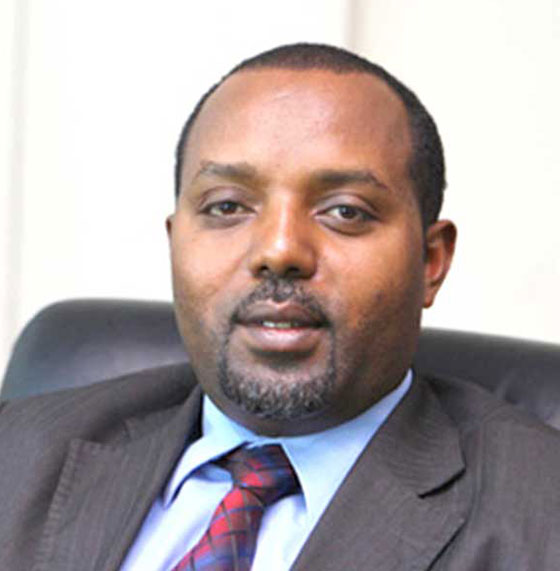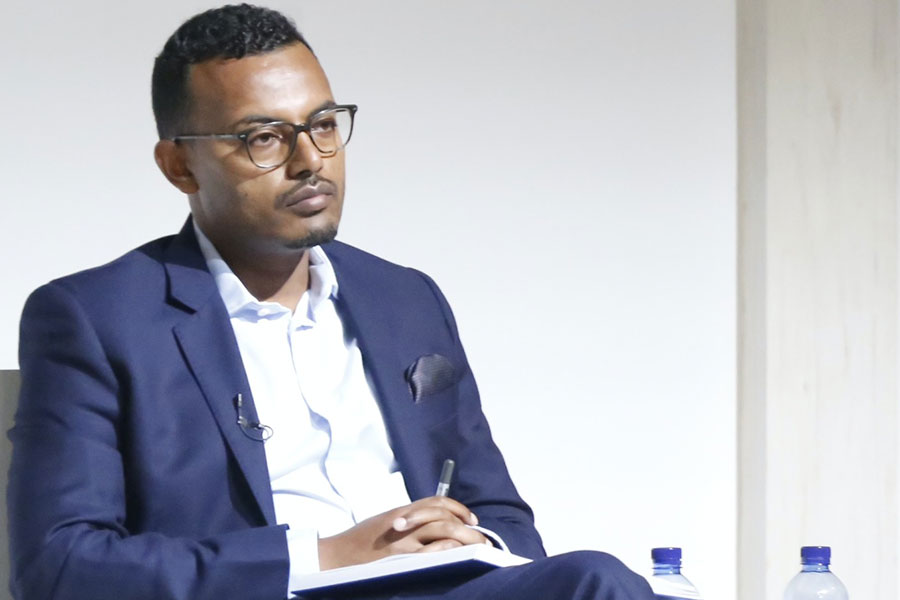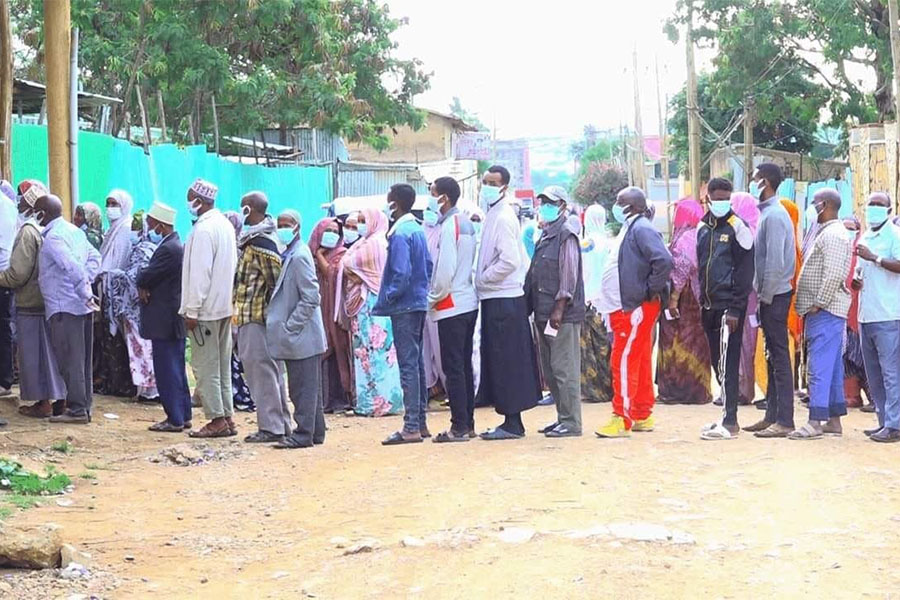
My Opinion | Aug 23,2025
The century-old uncontested state hold on the Ethiopian telecom sector is to be no more following a decision last week by the Council of Ministers to award an international consortium the first two private operating licenses.
It was a historic and unanimous decision by the Council, according to a senior government official who attended the meeting on Saturday, May 22, 2021.
The Council has selected the Global Partnership for Ethiopia, despite the 850 million dollars offer, an amount much lower than what government officials had hoped to reap from the liberalisation move.
The opening up of the telecom sector, captained by senior government officials, including Eyob Tekalign (PhD), state minister for Finance; Balcha Reba, director-general of the Ethiopian Communications Authority (ECA); and Brook Taye (PhD), a senior advisor at the Ministry has taken two years. Although the policy decisions to liberalise the sector and privatise the state-owned Ethio telecom were made by the EPRDF Executive Committee, the process on steroids began immediately after the rise to power of Prime Minister Abiy Ahmed (PhD).
Ahmed Shide, minister of Finance, has overseen a series of measures preparing the country for liberalisation, including legislation governing the sector and hiring a transaction advisor. The outcome, however, was not as enticing as it was initially hoped, where a telecom license would earn the country close to two billion dollars. Although no less than 12 companies showed interest, only two have placed their offers, discouraged by the deteriorating image of the country due to macroeconomic woes, political instability, and the ongoing war in Tigray Regional State.
Officials at the Authority believe that they have received good offers, though they acknowledge the offers were slightly lower than international value.
"Choosing one of the bidders shows that the government is determined to proceed with the liberalisation," said Dawit Bekele (PhD), regional vice president for Intern Society, an American non-profit that promotes internet use and access.
A consortium of Safaricom, Vodafone, and Sumitomo Corp offered 250 million dollars more than its bidder, MTN, for the 15-year license. MTN representatives were asked to revise their offers to bridge the gap between the two, amounting to 29pc, according to the Ethiopian Communications Authority (ECA). The bidders declined, stating that they had already presented their best offers, a decision that has pushed officials to float the bid for the second license anytime soon, probably before the new entrant begins operations in the next few months, Balcha told Fortune.
Policy adjustments will be made, and a bid will be floated, according to Brook.
The case for the government to cancel the bid and retender the license is strong among certain circles. However, the forex crunch facing the country, where the reserve is not enough to cover three months of import bills, earning 850 million dollars now is better than what will come next year, according to Andualem Tilaye (PhD), a macroeconomist.
The amount offered by the consortium is not significantly lower when considering the restrictive policy framework the country has, he said.
The Director of the Communications Authority, however, attributed the few numbers of interested bidders to restraints implemented in mobile services provision (mobile money) and infrastructure development (ownership of towers). In both cases, the administration of Prime Minister Abiy excluded foreign investment to the competitive advantage of the state-owned Ethio telecom.
Etisalat, Zain, and Orange were the bidders that opted out earlier due to the government's restrictive policies. They were not happy to be told a law bans them from operating as a mobile financial services provider and running third-party infrastructure operators. According to officials at the Authority, some also pulled out due to their interests in competing for the privatisation of Ethio telecom.
Bidding began in November last year, where 12 companies made their expressions of interest. Nine of the interested companies were found eligible to bid after two were non-operators, and Snail Mobile was a virtual mobile operator. Prospective bidders were required to meet certain technical criteria such as having 30 million users, experience in building fibre optics, and achieved 60pc 3G coverage and 30pc market share. The Authority said these requirements were in place to ensure bidders were of comparable status to Ethio telecom.
The new entrant into Ethiopia`s telecom market is expected to invest eight billion dollars in a decade and create jobs for 1.4 million people. An agreement has been reached that the consortium will kick off its operations with 4G services and immediately follow that up with 5G. It will also deploy an orbiting satellite by 2023 to guarantee national coverage of 4G.
The fund earned from the license fee is expected to go into the Liability & Asset Management Corporation, established recently with a capital of 570 billion Br, to cover the accumulated domestic debt of state-owned enterprises, which amounts to over one trillion Birr.
The opening of the telecom sector for competition has not been a standalone phenomenon. Ethio telecom has been in a race to expand its services, including expanding 4G LTE services to several regions outside of the capital. It also recently launched Telebirr, a mobile money service, which has garnered more than a million subscribers in a week.
PUBLISHED ON
May 23,2021 [ VOL
22 , NO
1099]

Fortune News | Jan 05,2020

Radar | Sep 18,2021


Fortune News | Sep 30,2021

Life Matters | Apr 03,2021

Dec 22 , 2024 . By TIZITA SHEWAFERAW
Charged with transforming colossal state-owned enterprises into modern and competitiv...

Aug 18 , 2024 . By AKSAH ITALO
Although predictable Yonas Zerihun's job in the ride-hailing service is not immune to...

Jul 28 , 2024 . By TIZITA SHEWAFERAW
Unhabitual, perhaps too many, Samuel Gebreyohannes, 38, used to occasionally enjoy a couple of beers at breakfast. However, he recently swit...

Jul 13 , 2024 . By AKSAH ITALO
Investors who rely on tractors, trucks, and field vehicles for commuting, transporting commodities, and f...

Oct 18 , 2025
The political establishment, notably the ruling party and its top brass, has become p...

Oct 11 , 2025
Ladislas Farago, a roving Associated Press (AP) correspondent, arrived in Ethiopia in...

Oct 4 , 2025
Eyob Tekalegn (PhD) had been in the Governor's chair for only weeks when, on Septembe...

Sep 27 , 2025
Four years into an experiment with “shock therapy” in education, the national moo...